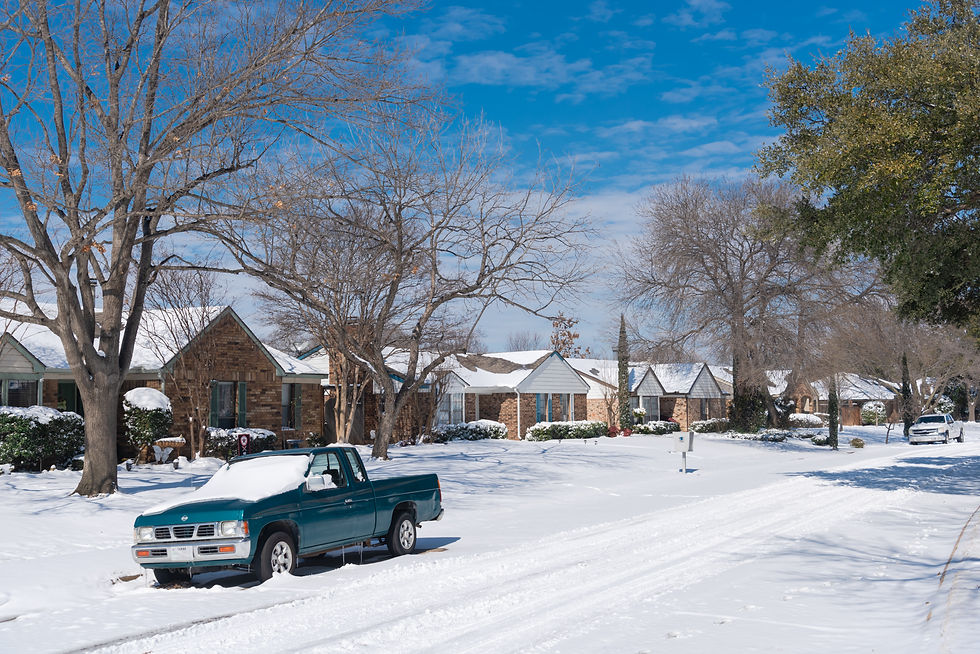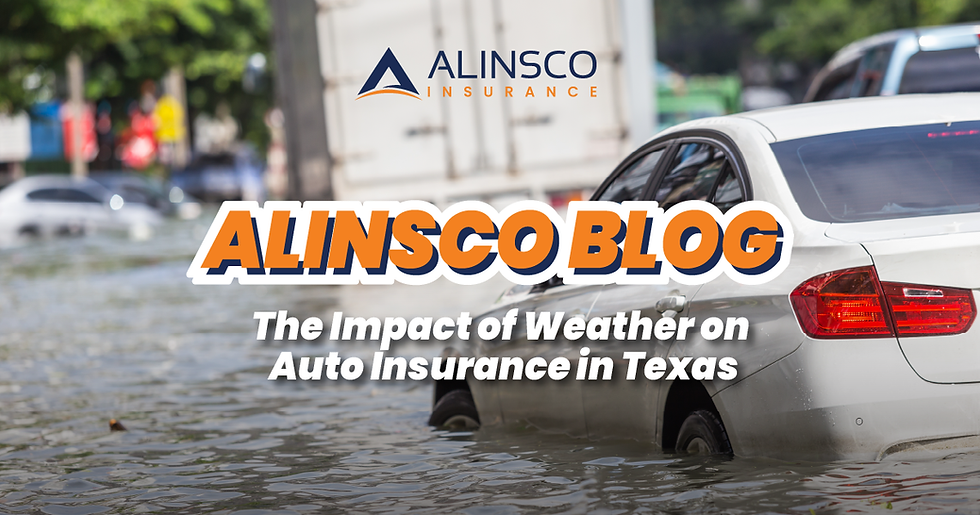Navigating Winter Roads!
- Alinsco Agency

- Dec 7, 2023
- 2 min read
The winter season paints a beautiful landscape with glistening snow and cozy nights, but it also brings forth a unique set of challenges on the road. As the temperature drops, so does the road's predictability, making winter driving a potentially dangerous activity. In this blog post, we'll explore the dangers of winter driving, how to prevent mishaps, and the role of insurance in safeguarding against unforeseen events.

Icy Roads and Slippery Slopes: The Menace of Winter Conditions
The most obvious danger of winter driving is the prevalence of icy roads and slippery surfaces. Black ice, snow-covered streets, and freezing rain can turn a routine drive into a treacherous journey. Sliding vehicles, reduced visibility, and sudden stops are common challenges that can lead to accidents and collisions. Ensure your vehicle is equipped with winter tires for better traction. Drive at reduced speeds and increase following distances to allow for safer stopping.
Winter often brings with it foggy conditions, limiting visibility on the road. This reduced sight range can make it challenging to spot other vehicles, pedestrians, or obstacles in a timely manner. Use fog lights and maintain a slower pace during foggy weather. Ensure your windshield and headlights are clear and free from frost.
Snowstorms and whiteouts are notorious for causing chaos on the roads. Reduced visibility, snow accumulation, and slippery surfaces can lead to accidents and vehicular pile-ups.
Stay informed about weather forecasts. If a storm is predicted, consider postponing your trip. If driving is unavoidable, maintain a slow and steady pace.

Winter is notorious for causing vehicle breakdowns, from dead batteries to engine malfunctions. Stranded motorists face not only the inconvenience of a breakdown but also the danger of exposure to extreme cold. Schedule a winter maintenance check for your vehicle. Ensure the battery is in good condition, and carry an emergency kit with essentials like blankets, water, and a flashlight.
Winter hazards can lead to unforeseen accidents and damage. Having the right insurance coverage is crucial during this season. Comprehensive auto insurance can provide financial protection against weather-related damages, collisions, and other winter-specific risks.
Review your insurance policy to ensure it includes comprehensive coverage. Understand the terms and conditions related to winter accidents and damages.

In conclusion, winter driving demands a heightened level of caution and preparedness. As insurance agents, your role extends beyond providing coverage; it includes being a valuable source of guidance for your insureds during challenging seasons. By understanding the specific dangers of winter conditions and implementing preventive measures, your clients can navigate the cold season safely. Additionally, take the opportunity to review and clarify the insurance coverage with your clients, ensuring they have comprehensive protection in the event of unforeseen winter-related incidents. Be the winter safety advocate your insureds need – help them stay safe, stay prepared, and enjoy the winter responsibly.



Comments